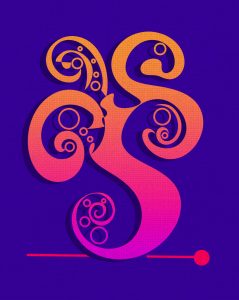18.05.2024

The views expressed in this piece of writing do not reflect the views of any organisation that I work at. They are my own personal views. I have heavily censored this piece and taken out more personal comments as this piece is intended to give a general and apolitical idea of my day to be on the safe side.
In the morning, I started off the day by giving the tours which I have written. My darlings and pets, my tours explore issues of art, fairness, equality and bias. What was best of all was that I was able to give the tours to families with children. The mothers are thankful because they get to hear about art and culture, away from the daily cares of the family and the children. The fathers listen patiently. Some of them are interested, some seem interested only because their partners are interested. Some of the children listen and interact with the questions. Some of the children clearly pay no attention to anything that is said. But, you hope that you are planting the seeds for the future and for justice. Preparing the grounds for all to share their vision in a just society.
This was followed by a stint on ticketing. The pleasures of ticketing are knowing that you know the knowledge about all of the various ticketing combinations: concessions, offers, third party vendors. You can use that knowledge to help the museum’s mission and to sell tickets to walk in customers, persuade them to purchase and come in with your knowledge of the museum. And, also, there is a challenge to try and sell as many souvenir guides and tote bags as possible. To aid carers with the special children with sensory bags and headphones. I helped quite a few today. I also spoke French to several customers – I am basically fluent for the purposes of the museum. Ticketing helps me practice my speaking skills in the language. For this role, loving the place you work at and loving to open access to it for everyone motivates you to perform as well as possible.
Next, there was the welcome to the museum’s galleries and helping the children to navigate activities around the museum. This is one of my favourite roles in the galleries. Because how often in life do you get to give people an adventure to go on together, which is what the activity is? I tell people about the story that we are telling in the museum. I show them the ropes to the wonderful place where I work.
More tours again. The highlights today? An Indian family who were completely enraptured by the tour and left me some wonderful feedback. And then there was a visitor from Colorado that was also a tour guide and she professionally assessed me and told me that I had done a wonderful job. She was very testing – she asked me a whole heap of questions about art materials!
There was the patrol of the main gallery next. Here, it is a case of problem solving. I reported some things to maintenance. I reunited families that had strayed from each other, including stopping a little blonde girl in a rainbow dress from crying like her heart was going to break and taking her worries away from her by showing her that I was a strong adult that could solve her problems – I made her stop crying in five seconds. I broke up an argument between some protective parents and smoothed things over. I investigated a dangerous incident which could have caused some injury – children being naughty. I talked to some of the customers and asked them how their day was going. I directed someone with a research enquiry. I showed directions to people. I stamped cards. I gave out stickers for completed adventures. I took photographs of families all smiling and enjoying their time in the museum. I also told off people for misbehaving, dealt with abandoned property and made sure everything in the museum was clear, clean and safe. I take all my duties seriously and don’t look at any task as being beneath me. The visitors are our guests and our responsibility.
I hadn’t bought lunch so I went to my cupboard and just heated up two small plastic tubs of spaghetti in tomato sauce.
After lunch, it was the main gallery again. Activities included dealing with a case of mild vandalism in the museum, investigating a potential issue with the facilities (luckily there was no issue) and also dealing with a first aid incident. I also had a full blown conversation in French with a woman who had a child with her. Good practice again. The end of the day was clearing the museum and making sure all the exhibits and art was in order.
Throughout the day, I talked to the other museum staff in Visitor Experience, the Learning Team, one of the Senior Managers who was very pleased to see me after a while, the Maintenance Team, the Cleaners, and the Retail Staff. It takes a multi disciplinary team to run a museum.
What was one of the biggest highlights of the day? Another staff member came to me with a query. This staff member had asked several other staff members about that query. Nobody knew anything about it. But I knew. And when I told this staff member, they told me that the knew that I would know even if nobody else did. That’s how much my colleagues respect me and my experience in the museum.
Quite a satisfying International Museums Day. I do love my job. I work in museums to spread education. And I always feel that I do that at the end of the day.
